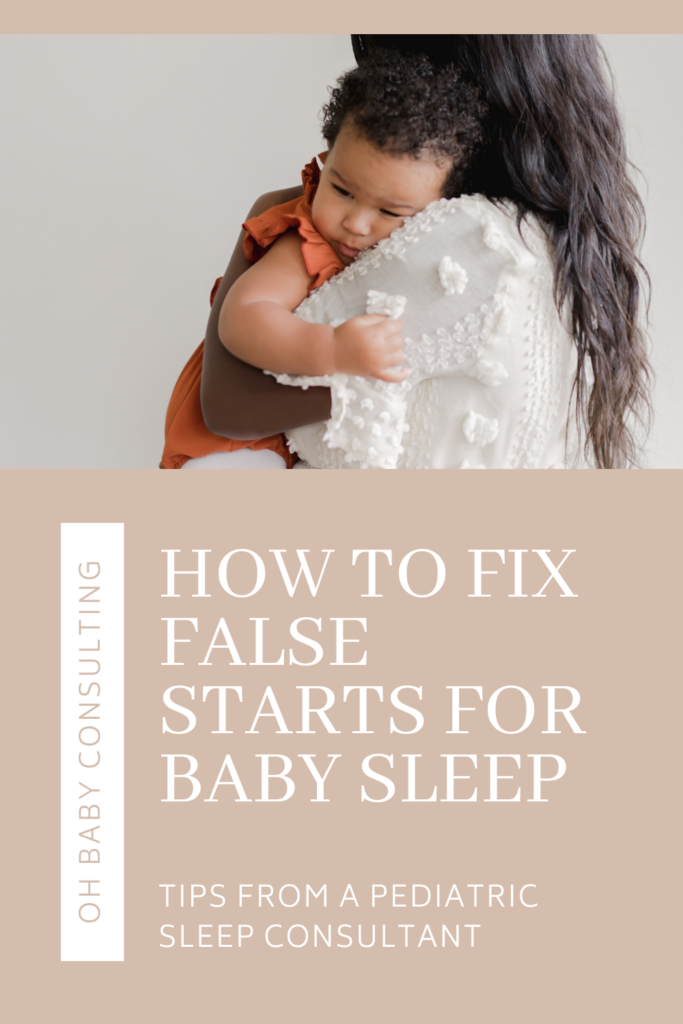A false start is commonly defined as waking shortly after going down for bed. Usually this wake up happens within one sleep cycle which is about 30-45 minutes but can also be a series of smaller wake ups before your little one finally falls into a deeper sleep.
Both definitions capture the term “false start”, both are equally annoying and disruptive to everyone’s evening, and both stem from two main reasons:
1. Your baby has the wrong bedtime
The most common schedule-related cause of a false start is overtiredness. This means that your baby is awake too long between their last nap and bedtime. The quickest and most straightforward fix is to bring bedtime earlier – even 15 minutes can make a difference.
Then – annoyingly – there are some babies who have false starts because they are under tired. If you have tried adjusting their schedule to eliminate overtiredness, consider whether you have a lower-sleep needs child who may need slightly more time awake before bedtime.
For help creating and following a schedule for your child, download my comprehensive Nap Guide. Inside you’ll find wake window + clock-based schedules for newborns, babies, and toddlers.
But don’t get carried away with constant schedule-tweaking, because in addition to schedule inappropriateness, independent sleep skills play a large role in false starts at bedtime.
2. Your baby is not an independent sleeper
One of the biggest contributors to nighttime waking – whether it’s shortly after bedtime, in the middle of the night, or during the early morning hours – is a lack of independence at bedtime. Research shows that if your baby needs some type of assistance to fall asleep at bedtime, they are more likely to need additional assistance at various points in time throughout the night.
You may be thinking, “But my baby can sleep a nice long stretch after I get them back down!” And if that’s true – that’s great! But there’s a reason for that. Sleep cycles deepen after about 9/10pm until about 2am so it’s easier for babies – especially those who rely on help to get to sleep – to remain sleeping during this time frame.
Sleep training can help solve this culprit and with it, the false starts will disappear.
For sleep training support, I invite you to browse our services to see if any would be a good fit for your family.
False starts can be frustrating for both parents and babies alike – bedtime should mean a peaceful stretch of sleep for everyone! Remember, if you’re experiencing challenges with your child’s sleep, don’t hesitate to reach out for support. Together we can work on creating a bedtime routine that ensures a restful night for the whole family.














